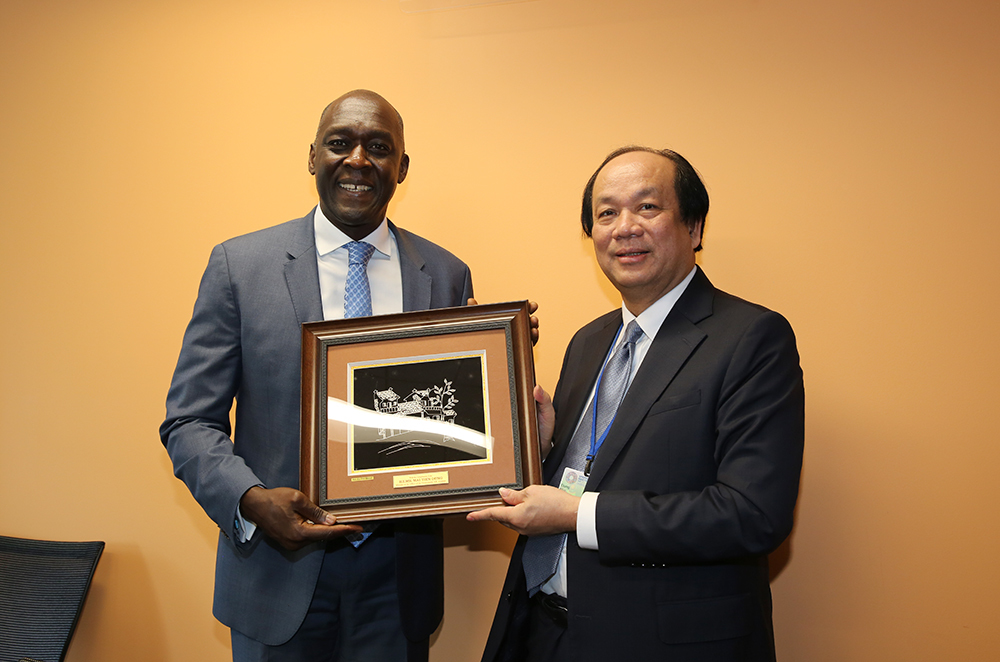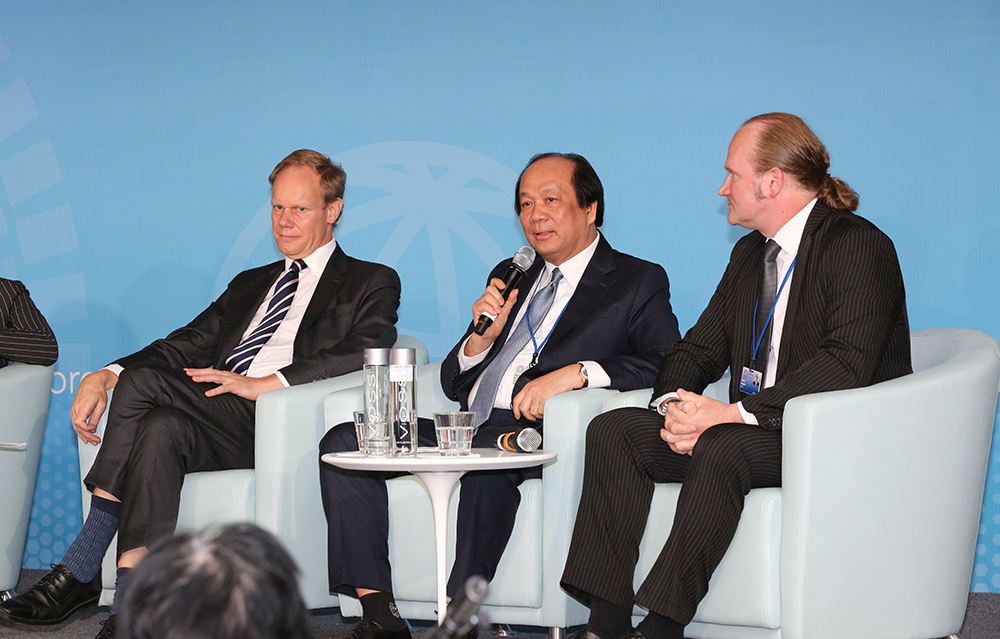
Minister-Chairman of the Government Office Mai Tien Dung (R) and World Bank Vice President for Infrustructure Makhtar Diop in Washington, D.C., on April 13, 2019. Photo: VGP
He made the above statement at his meeting with Vietnamese Minister-Chairman of the Government Office in Washington, D.C., on April 13 (local time).
Makhtar Diop said the World Bank will help Viet Nam to send e-government staffs to developed countries to learn skills on operating e-government system.
Meanwhile, Lesy Goh, Group Chief Technology Officer and Director of Enterprise Architecture and Technology of the World Bank named challenges for Viet Nam to carry out e-government projects, thus the country needs to balance time and set goals.
Minister-Chairman Dung said the Government of Viet Nam places high priority on e-government development in 2019, focusing on raising the country’s global e-government index.
The Government established a national committee for e-government led by Prime Minister Nguyen Xuan Phuc since August 2018
On March 12, 2019, the Government launched the national e-document exchange platform and planned to inaugurate the national online public service portal in November this year.
Dung called on the World Bank to continue assistance for Viet Nam’s e-government development efforts, including sharing good practices, institutional building, human resource training, and public awareness improvement.
E-Government building is one of VN’s top priorities
Viet Nam has defined e-Government building as one of the top priorities until 2020, according to Minister-Chairman of the Government Office Mai Tien Dung.

Minister-Chairman of the Government Office Mai Tien Dung (middle) at the GovTech session held on the occasion of the 2019 Spring Meetings of the World Bank Group
Minister Dung stressed the point in his remarks at GovTech session held recently on the occasion of the 2019 Spring Meetings of the World Bank Group.
Viet Nam is working towards a digital Government, digital society and digital economy, Dung added.
According to Minister Dung, Viet Nam started e-Government development in 2000 with initial outcomes.
Viet Nam ranked 88th out of 193 countries and territories in the United Nations E-Government Survey 2018, and 6th in ASEAN. However, the position remain modest in the region and the world, Dung said.
In the context of the fourth industrial revolution, the Vietnamese Government has considered e-government building to create a solid foundation for the total digital transformation in the 2021-2030 period.
However, Viet Nam is facing certain barriers, including the lack of important legal regulations for database connectivity and sharing among State agencies, electronic authentication, online administrative procedures, and protection of personnel database.
Regarding technical infrastructure, Viet Nam’s e-government architectural framework has yet matched with international standards and practices.
In addition, heads of ministries, agencies and localities in e-government development have not made great endeavors in e-government building, Dung said.
In a bid to accelerate e-government development, the Vietnamese Government established a national committee for e-government led by Prime Minister Nguyen Xuan Phuc since August 2018.
On March 12, 2019, the Government also launched the national e-document exchange platform and planned to inaugurate the national online public service portal in November this year. VGP